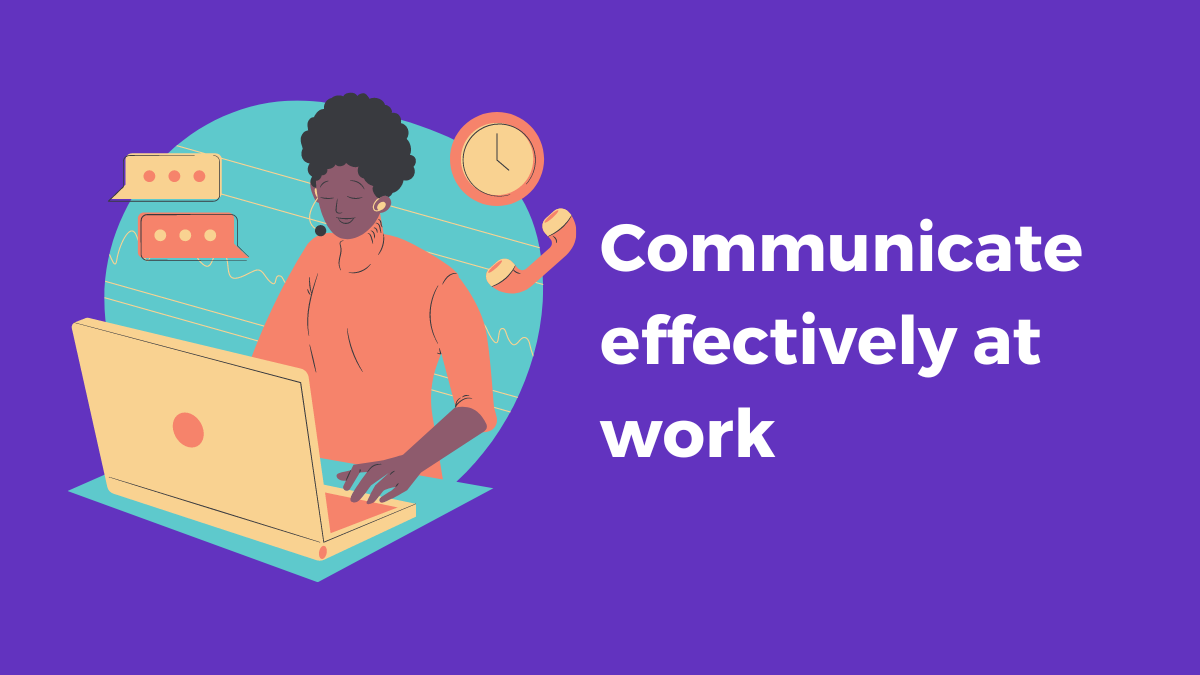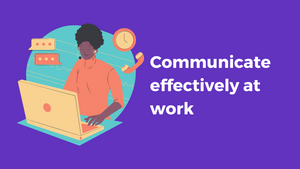
How to communicate effectively at work
Did you ever struggle to effectively communicate at work? I sure did. You would have noticed by now that some people in your workplace are natural when it comes to communicating. And some people lack those skills. However, unlike other skills, effective communication skills are easy to pick up.
With some guidance and practice, you can be on top when it comes to communication at work.
Table of Contents
Why is effective communication important at work?
Effective communication is important at work to avoid misunderstandings, mistakes, broken relationships with coworkers, project delays, unproductive work, and demotivation.
10 best strategies to improve communication in the Workplace
I have prepared a list of the 10 best strategies to improve communication in the workplace. You can improve your skills by learning and practicing these strategies.
- Get to know your coworkers - The first step is to understand your coworker’s interests, backgrounds, and communication styles.
- Get hold of your emotions - Our emotions can blur our communication skills. Respond in a calm and composed manner, even in challenging situations. You can do it by practicing emotional intelligence.
- Be friendly - Create a friendly and welcoming relationship with your coworkers. This makes you approachable and welcoming. This can also promote open communication and a positive environment in your workplace.
- Be confident - Confidence in communication always create a strong personality and clarity in ideas. Maintain positive eye contact and confident language.
- Try Active listening - Use the art of active listening. It will help you to understand others and what they have to say. It also shows respect and creates a positive environment. If you are interested in this topic then here is an article - How to improve your listening skills
- Be concise - Whenever possible, use simple language in your communication. Try to avoid unnecessary jargon words or lengthy explanations. Here is an article that might help you on this topic - How to be more concise when speaking
- Clarify doubts - Always clarify doubts and misunderstandings. Don’t let a small misunderstanding rune your years of hard work.
- Ask questions - Try to ask questions in a conversation whenever possible. It will show that you are interested in the conversation and value the other person. If you want to know more about other people then ask open-ended questions. Here is an article on this topic - How to ask open-ended questions
- Avoid using “but” - Whenever you use “but” after the other person’s message in your conversation, it negates the previous statement, and can lead to a defensive conversation. Instead, you should use words like “and”, “in addition to”, or “however”. It will connect statements and promote collaborative communication.
- Take breaks - You might not believe me but communication can sometimes be stressful or intense. Take breaks to manage stress levels and maintain your communication skills.
Conclusion
By mixing the above-mentioned communication strategies with your communication style, you can improve your skills and can create a positive relationship in your workplace.
Remember, It will take practice to improve your communication skills.




